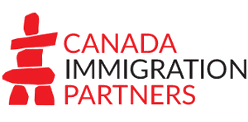One of the main priorities of the Canadian Immigration Act is to see that families are reunited in Canada through family class sponsorship. Read on to find out more about the options and process for sponsoring loved ones to Canada.
The immigration class offered by the IRCC for reuniting families is itself known as ”family class sponsorship”. Canadian citizens and permanent residents can apply to reunite their families in Canada using this immigration program.
Many people believe that family sponsorships are easy and simple – all they need is to be family to make them eligible, right?
While the most fundamental requirement is that they are family, the sponsorship application itself is all about the details – in short, proving on paper that the relationship is genuine. When it comes to a spousal, common-law partner, and conjugal partner sponsorships, the whole application could easily be a few hundred pages long!
Here’s how the family class works, the challenges you might face, which program should you choose, and how to tell if you and your family meet the requirements.
Family Sponsorship Canada: Challenges and How to Overcome Them
An immense amount of detail is required to prove one’s relationships. The guidelines and document checklists that IRCC provides are just the minimum requirements and don’t guarantee success.
For a sponsorship application to be successful, it is best to exceed the visa officer’s expectations by preemptively disclosing information that the officer may have concerns about. Do so, and you’ll ensure you’ve submitted a decision-ready application and avoid unnecessary information requests that can dramatically extend processing times.
If you make a single mistake or did not explain things clearly enough, the application would be put on hold, for 90 days minimum, for you to submit additional documents or explanations.
In the worst-case scenario, officers can suggest that your application is a misrepresentation of your relationship with the person in question. If that happens, you’ll be prohibited from submitting a sponsorship application for 5 years.
Another consequence of self-submitted incomplete applications that we see is when the sponsored person was already on a work permit and then submitted an application that was subsequently rejected.
When the refusal determination on the sponsorship application is received the sponsored person loses their implied status as a worker and must stop work immediately. Because by this time their previous work permit is often expired. They must take time off work for six months or longer to submit a complete application and get a positive determination on their work permit. As well as applying to restore status in Canada
This can be a major disruption putting financial consequences and stress on the applicant and their partner.
Needless to say, it’s pretty important to get things right on your first try. If you’ve ever wondered what the value of professional immigration advice is, you’ve got your answer! Want even more? You’ll find it here.
Can You be a Family Class Sponsor?
Before filling out a family class immigration application on behalf of a relative, you must meet the basic requirements to become a sponsor:
- You are a Canadian citizen or permanent resident.
- You are at least 18 years old.;
- You reside in Canada or are planning to reside in Canada once the application is approved.
- You are not in bankruptcy, in jail, charged with a serious offense, or under any removal orders.
A note on partnerships
If you become a permanent resident through family class sponsorship yourself, you’ll need to ask yourself an extra question here. Those who became residents as a spouse, common-law partner or conjugal partner within the past five years are not eligible to become the sponsor of another spouse, common-law partner, or conjugal partner.
Depending on who is being sponsored, there may be additional requirements on aspects such as income and undertaking periods. You’ll find more details on the government’s family class application page.
Who Can You Sponsor with Family Class Immigration?
According to the Immigration and Refugee Protection Regulations, sponsors can apply to sponsor “admissible members of the family class”. There are several different profiles within that category – it’s not a blanket designation. Most commonly, though, people apply to sponsor their spouse, common-law partner, conjugal partner, dependent children, parents, or grandparents.
Here are the official definitions of each member of the family class to help you figure out how your relatives might be categorized:
Spouse
A legal marriage partner that is over 18 years of age. This term includes both opposite- and same-sex relationships but does not include common-law partnerships.
Common-law Partner
A person who has been living with another person in a conjugal relationship for at least one year. He/she must be over 18 years of age. The term refers to opposite-sex and same-sex relationships.
In order to be considered a “conjugal relationship”, you’ll need to prove that you support and rely on one other. It is not quite the same as living together while dating – and regular roommates definitely don’t count!
To sponsor a spouse or common-law partner, you have a choice of applying inland or outside of Canada. Check the sections below for more details about the program.
Conjugal partner
This refers to a person outside Canada who has had a binding relationship with the sponsor for at least one year but could not live with them. The term refers to both opposite-sex and same-sex relationships.
Dependent children
A child who depends on their parent for financial and other support. A son or daughter is considered a dependent of their parent when the child is:
– under 19 years old, and does not have a spouse or partner, or
– 19 years old and over, and has depended largely on the parent’s financial support since before the age of 19 because of a physical or mental condition.
This also includes dependent children adopted under the Hague Convention on Adoption. If the adoption happened when the child was 18 years old or above, some other conditions would apply.
Note that if the application was submitted before August 1, 2014, the sponsee could be under 22 years old.
Parents
The mother or father of the sponsor. This could be the natural parent or adoptive parent of the sponsor.
Grandparents
The mother or father of the sponsor’s mother or father.
To sponsor parents and grandparents, the application processing time is quite long, 32 months on average! If sponsors wish to have their parents/grandparents visit Canada sooner, they could apply for a parent/grandparent “Super Visa”, which you can learn more about here.
Other cases
If none of those sound like they quite fit your situation (think aunts and uncles, etc.), it’s worth visiting the government website to dive into more detail. Family class sponsorship can get complicated – if you’re in need of professional help, book a consultation to fully understand your options.
How Family Class Sponsorship Canada Works
There are two parts to all sponsorship applications:
- The citizen or permanent resident applies to sponsor, then
- The persons being sponsored apply for permanent residence.
Both parts have to be sent to the case processing centre together.
The type of relative you’d like to sponsor will affect the program you choose. Here’s a breakdown:
Spouses, common-law partners, and conjugal partners
As mentioned above, when sponsoring a spouse or common-law partner, you have a choice of applying through the “inland” or “outland” category. When sponsoring a conjugal partner, you are only eligible to choose outland.
Inland
To apply for the spouse and common-law partner inland sponsorship, both the sponsors and their sponsee must be residing in Canada when the application is submitted.
The spouse/common-law partner should have valid temporary status in Canada – such as a visitor, student, or worker visa.
One advantage of applying inland over outland is the spouse/common-law partner is eligible to apply for an “open work permit” along with the sponsorship application. An open work permit allows one to work for any employer in any field. Want to learn more about Canadian work permits? We’ve got you covered.
The limit of the inland sponsorship is that the spouse/common-law partners are highly recommended not to leave Canada while the application is being processed, as there is no guarantee that they would be able to re-enter the country.
If the application was processed and the spouse/common-law partner could not re-enter Canada, that application could be considered abandoned.
Outland
This program is usually chosen when the person being sponsored is living outside of Canada.
If the sponsors themselves are also living abroad, a detailed Canada settlement plan would be required.
There are no open work permits for sponsorship from outside the country. If the application is approved, the person who is being sponsored will not come to Canada as a temporary visitor. During the application process, they’d have to apply for temporary status.
The advantage of the outland sponsorship is that it allows more flexibility when it comes to travelling, because you do not have to worry about not being able to re-enter Canada.
If you and your partner have a traveling bug, this may be more suitable for you. Note that even if both you and your spouse/common-law partner are residing in Canada, you may still choose to submit an outland application.
| Inland | Outland | |
| Who can be sponsored under this program? |
|
|
| Submit location | In Canada | Outside of Canada
Will have to provide a detailed Canada settlement plan |
| Interview location, if required | In Canada | Visa Office Abroad |
| Advantages | Eligible for Open Work Permit | More flexibility for travelling |
| Disadvantages | Highly recommended to not leave Canada while the application is being processed | No open work permit |
| Processing time (as of 2022) | 12 months | 12 months |
As in the Immigration and Refugee Protection Regulations, there is no income requirement for sponsoring a spouse, common-law partner, or conjugal partner. However, the sponsors would still have to provide a detailed explanation of how they would support their family in Canada.
Dependent Children
Canadian citizens and permanent residents may apply to sponsor their dependent children to Canada.
Sponsoring a dependent child is the same as sponsoring a spouse, common-law partner, or conjugal partner in that there is no minimum income requirement. However, they need to explain how they would support their family in Canada.
Parents, Grandparents
Parent/Grandparent Sponsorship
Canadian citizens and permanent residents may also apply to sponsor their parents or grandparents to Canada.
One major additional requirement for Parent/Grandparent Sponsorships is the Minimum Necessary Income, which equals to the Low-Income Cut-offs (LICOs) plus 30%. Sponsors must meet this financial requirement to apply for this sponsorship.
Federal Income Table for Parents and Grandparents Sponsorship (2020, 2019, 2018)
| Minimum Income | |||
| Size of Family Unit | 2020 | 2019 | 2018 |
| 2 persons | $32,899 | $41,007 | $40,379 |
| 3 persons | $40,445 | $50,414 | $49,641 |
| 4 persons | $49,106 | $61,209 | $60,271 |
| 5 persons | $55,695 | $69,423 | $68,358 |
| 6 persons | $62,814 | $78,296 | $77,095 |
| 7 persons | $69,935 | $87,172 | $85,835 |
(as of April 2022)
For parents/grandparents to become permanent residents, sponsors must maintain their income at or above the Minimum Necessary Income.
Parent/Grandparent “Super Visa”
Since the parent/grandparent sponsorship application processing time is long, IRCC introduced the Parent/Grandparent Super Visa for parents and grandparents to visit their family in Canada.
This visa could remain valid for 10 years, allowing parents/grandparents to stay in Canada for up to 2 consecutive years.
Similar to Parent/Grandparent Sponsorship, the Canadian child/grandchild have to meet a minimum necessary income. See the table below.
| Size of Family Unit | Minimum necessary income |
| 1 person (your child or grandchild) | $25,921 |
| 2 persons | $32,270 |
| 3 persons | $39,672 |
| 4 persons | $48,167 |
| 5 persons | $54,630 |
| 6 persons | $61,613 |
| 7 persons | $68,598 |
| For each additional person, add one. | $6,985 |
In Canada, the parent or grandparent would have to get a medical exam and have their own health insurance.
Take the Next Step Towards Sponsoring a Relative
Canada’s Family Class Sponsorship programs are one of the most popular and benevolent family reunification programs in the world. If you wish to bring your loved ones to Canada, start out on the right foot and schedule a consultation to confirm your eligibility and learn about the steps in the Family Class Sponsorship process.








